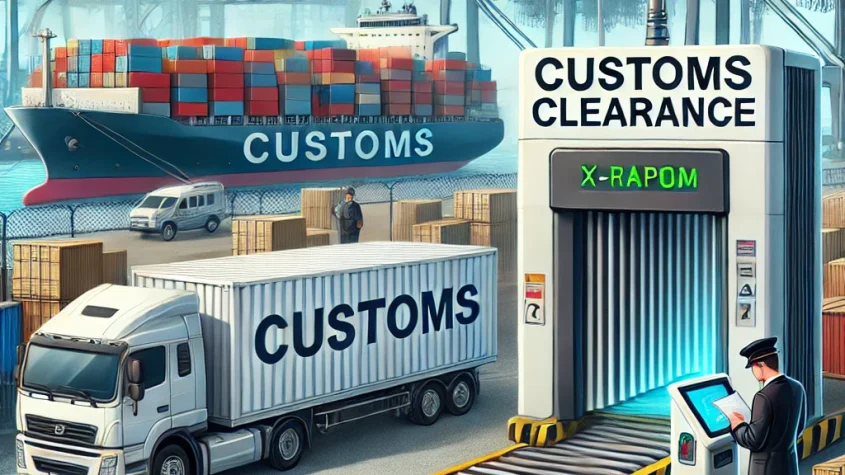Section 321 Imports: Understanding Duty-Free Shipping for Low-Value Goods
Section 321 of the Trade Act allows imports valued at $800 or less to enter the United States without the payment of duties or tariffs. This provision facilitates hassle-free access for low-value goods, benefiting retailers and consumers alike. By streamlining the import process, Section 321 encourages small businesses to engage in international trade, providing them with a competitive edge.
Understanding the nuances of Section 321 can significantly impact how businesses approach their import strategies. It enables importers to bypass complex customs procedures for low-value shipments, simplifying the logistics involved in bringing products to the U.S. market.
As e-commerce continues to grow, this section plays an increasingly important role in enabling swift transactions for small parcels. Readers will discover how to leverage this regulation effectively, maximizing the benefits for their businesses while navigating the complexities of international trade.
Overview of Section 321 Imports
Section 321 of the Trade Act of 1974 allows goods valued at $800 or less to be imported into the United States without incurring customs duties. This provision aims to simplify the import process for low-value shipments and promote trade efficiency. Understanding the eligibility criteria and the role of Customs and Border Protection (CBP) is essential for importers.
Eligibility Criteria for Section 321
To qualify for Section 321, goods must meet specific criteria. First, they must be valued at $800 or less, including all costs associated with the item. This valuation applies to individual items or collections of goods shipped together.
Additionally, the imported item cannot be part of a larger shipment that appears to be deliberately split to avoid the value threshold. Importers must ensure that shipments comply with all other regulatory standards. Eligible goods can include a wide range of products, but restrictions apply to certain items such as firearms and prohibited goods.
Customs and Border Protection (CBP) De Minimis Ruling
The CBP’s De Minimis rule plays a critical role in enforcing Section 321. This ruling allows for the expedited processing of low-value shipments, thereby minimizing paperwork. CBP officials assess these imports to verify compliance with Section 321 requirements.
Importers must provide accurate documentation and have a clear understanding of their obligations. Failure to comply with these regulations can result in delays or penalties. It is crucial for importers to stay informed about any changes to regulations and procedures concerning Section 321 imports.
Operational Processes for Filing
Filing section 321 imports involves specific operational processes that ensure compliance with customs regulations. Understanding the electronic systems in use and the types of entries can streamline the filing process.
Electronic Data Interchange (EDI) Requirements
EDI is a critical component for submitting import data electronically. It allows for seamless communication between importers and U.S. Customs and Border Protection (CBP).
Key EDI requirements include:
- Use of Standard Formats: Data must conform to CBP standards using formats like X12 or EDIFACT.
- Timeliness: Submissions must occur within set timeframes before entry.
- Validation: EDI submissions undergo validation checks to ensure accurate data transmission.
Maintaining compliance with these requirements reduces the risk of delays and potential penalties.
Automated Broker Interface (ABI) Filing
ABI enables importers and brokers to file entries electronically, enhancing efficiency. It offers a simplified process for filing customs entries and tracking shipment status.
Advantages of ABI filing include:
- Real-Time Processing: Updates and notifications occur in real-time, improving communication.
- Reduced Errors: Automation minimizes human error through standardized data entry and checks.
- Enhanced Tracking: Importers can track the progress of their entries easily.
Utilizing ABI cuts down processing times and enables quicker customs clearance.
Entry Type 86 for Customs Clearance
Entry Type 86 is specifically designated for section 321 imports, allowing for duty-free treatment on qualifying shipments. This entry type simplifies customs procedures for low-value goods.
Requirements for using Entry Type 86 include:
- Value Limit: Goods must not exceed the value limit set by CBP, currently $800.
- Documentation: Detailed invoices and records must substantiate the entry.
- Specificity in Description: Accurate descriptions of goods are essential to avoid customs holds.
Employing Entry Type 86 effectively can facilitate smoother import processes for eligible products.
Rent Mini Excavator Near Me: Finding the Best Local Options for Your Project
Finding a reliable rent mini excavator near me service can significantly streamline constr…












